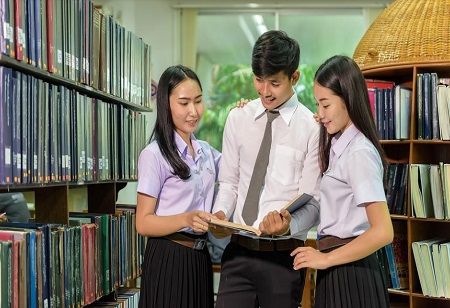The Department of Social Welfare and Development (DSWD) has recruited some 18,000 college students to serve as mentors and youth development workers for the third year. A total of 18,055 college students will be trained for five days for its cash-for-work tutoring program, the 'Tara, Basa!' tutoring program, next month, the DSWD stated.
Other issues to be covered in the mentor training workshops are elementary gender and cultural sensitivity, money management, and an "in-depth orientation" on their role as tutors and youth development workers. "We are not only preparing these students to teach, but to become holistic support systems for children and parents as well", DSWD spokesperson Irene Dumlao says in a statement.
A workbook for students and a guidebook for facilitators will also be given to the participants of the program to use as their reference materials during the sessions. These were created by the DSWD in collaboration with the Ateneo Center for Educational Development and the Department of Education. The youth development workers and tutors, who are typically education majors at the college level, will be paid based on the current regional daily minimum wage rate for the 20-day learning session.
These elementary students will be tutored by the tutors, while the youth development workers will conduct 'Nanay-Tatay teacher sessions' with the students' parents or guardians to evangelize 'positive parenting' and other relevant subjects like Filipino family life and self-knowledge as a parent.
One of the program's tutors, third-year college student Jomel Sabalboro from Albay, said that his work is more than teaching since it is also crucial to "create meaningful learning experiences tailored to the needs of the struggling learners".
Teachers' training, too
“I thought my role was simply to teach struggling readers using printed materials, like storybooks. However, through the sessions, I realized that my responsibilities go far beyond that”, he says in the DSWD statement.
This year, the program, classified as supplementary learning sessions, was even extended to all 12 regions, i.e., Metro Manila and regions of Ilocos, Central Luzon, Calabarzon, Mimaropa, Bicol, Central Visayas, Eastern Visayas, Zamboanga Peninsula, Northern Mindanao, Soccsksargen, and Caraga.
It had its pilot implementation in Metro Manila when it was rolled out in 2023, and then was offered to six more regions.

